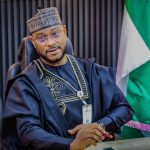
Advertisements
Artificial Intelligence (AI) is rewriting the rules of global software development, creating new winners and leaving laggards behind.
Across the world, countries are racing to integrate AI into their economies, from digital governance and financial services to health and education.
Yet in Nigeria, the conversation remains fragmented, weighed down by institutional inertia, leadership wrangling, and a lack of coherent national direction.
The uncomfortable question is: has Nigeria’s software industry lost its voice in the age of AI?
Nigeria’s software and digital services market, estimated at over US$2.4 billion in 2024, continues to grow steadily, driven by fintech, government digitisation, and education technology. But growth has not translated into global competitiveness or policy leverage.
For a country of over 220 million people, and Africa’s largest concentration of software talent, Nigeria still lacks a clear AI strategy or institutional coordination framework to guide local innovation. Instead, the sector’s most visible professional bodies are caught in endless turf wars and leadership crises.
The Institute of Software Practitioners of Nigeria (ISPON), once the torchbearer for local software advocacy, has grown moribund. Its silence on critical issues like AI ethics, software sovereignty, and indigenous intellectual property protection has been deafening.
Similarly, the Nigeria Computer Society (NCS), the umbrella body for IT professionals, has seen its influence weakened by internal divisions and inconsistent engagement with government.
These fissures mean that as the world accelerates into the AI era, Nigeria’s software community lacks a unified voice capable of shaping national policy or safeguarding local innovation.
Legendary serial entrepreneur Leo Stan Ekeh, chairman of Zinox Group, cautions that the AI race is meaningless without reliable infrastructure. “We can’t compete on AI with unstable power and inconsistent broadband. You can’t build intelligence on inefficiency,” he told a recent tech forum.
Veteran software advocate Chris Uwaje, former ISPON president, has long warned that “if Nigeria does not protect its software sovereignty, it risks becoming a digital colony.”
He has repeatedly argued that indigenous software not imported systems should power government operations, citing success stories like Remita, the homegrown platform that revolutionised Treasury payments.
Their words echo a shared frustration, Nigeria has the talent, but not the structure.

Globally, AI is transforming the software industry. Machine learning engineers, data scientists, and AI architects are the new rock stars.
In 2024 alone, global investment in AI startups surpassed US$70 billion, with Africa attracting less than 1%.
In Nigeria, only a handful of firms, mainly in fintech and healthtech, are building AI-driven products. Universities are still catching up, with outdated curricula and limited access to computing infrastructure. The result is a widening skills and competitiveness gap.
Meanwhile, international tech giants like Microsoft, Google, and AWS are embedding AI in every layer of their products, consolidating global dominance, while Nigerian developers remain trapped in survival mode, fighting for funding and visibility.
Nigeria’s software practitioners are not short on ideas. What’s missing is coordination and political will.
A revitalised ISPON and a forward-thinking NCS could:
Push for a National AI Policy that balances innovation with ethics and sovereignty.
Champion local content laws mandating government and critical sectors to prioritise indigenous solutions.
Create an AI Fund to support startups building local-language models, agricultural analytics tools, and public-sector automation.
Without this kind of unified agenda, the country will continue to import digital intelligence instead of exporting it.
Nigeria stands at an inflection point. Its young population, entrepreneurial energy, and expanding digital infrastructure are undeniable strengths. But to seize the AI opportunity, it must first repair its foundations — governance within industry bodies, collaboration among stakeholders, and credible policy engagement with government.
As Chris Uwaje often says, “Software is the DNA of national development.”
If that’s true, then AI is the new evolution of that DNA and Nigeria must decide whether to lead, follow, or be left behind.
*Don Pedro Aganbi is a digital advocate, tech journalist, and convener of the Titans of Tech Conference and Expo. He writes on innovation, governance, and the future of Africa’s digital economy.







